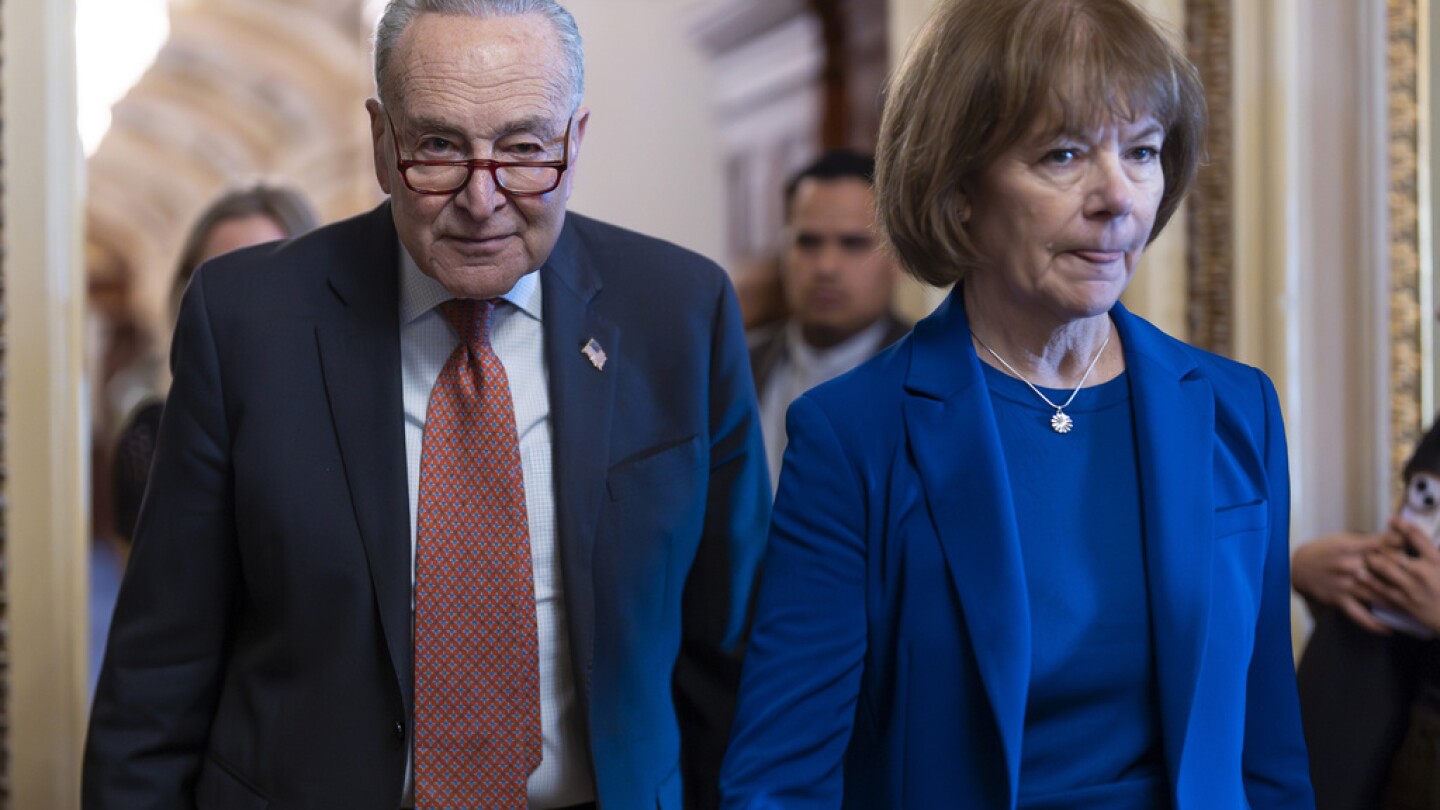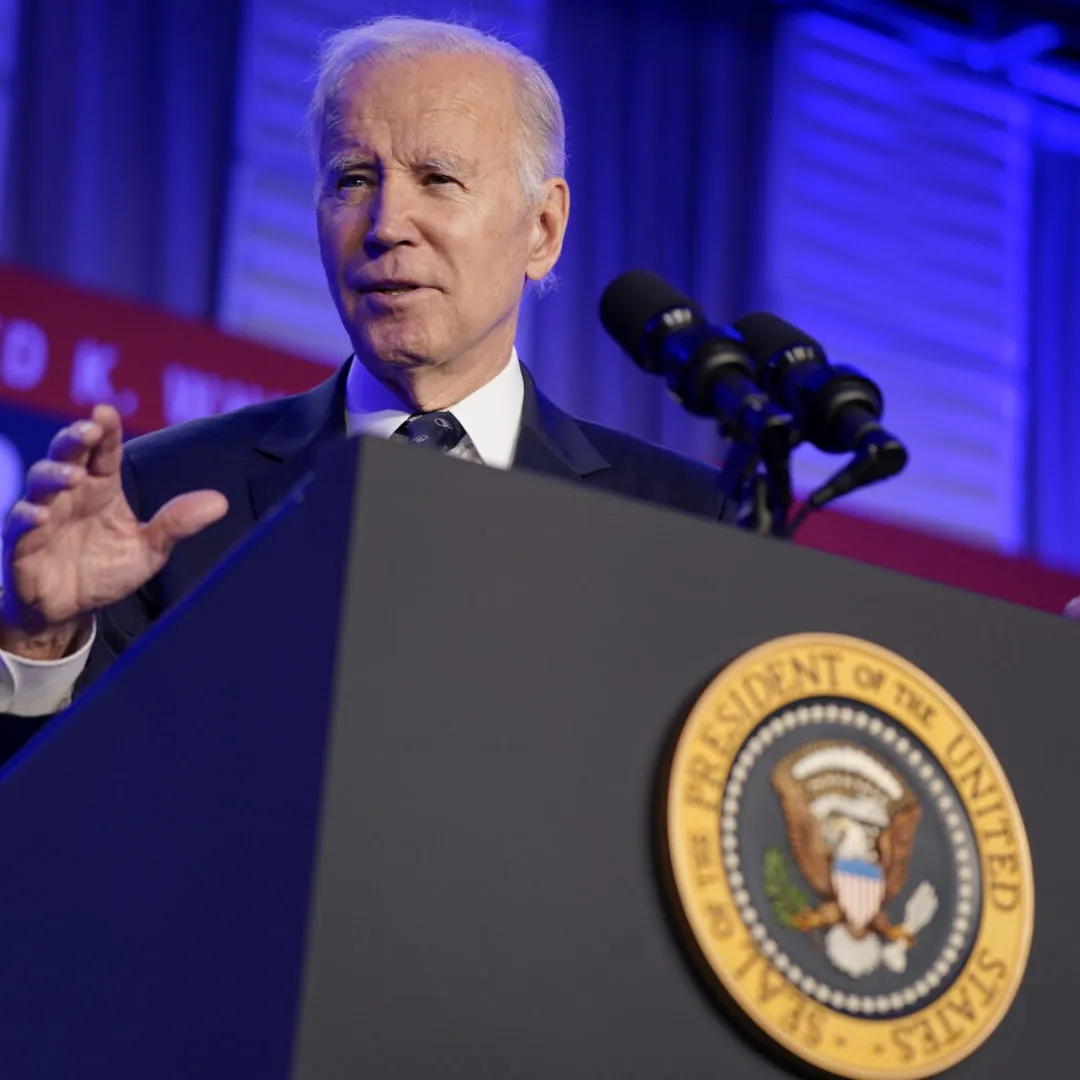Senate Democratic Leader Chuck Schumer issued a sharp rebuke Friday of President Donald Trump’s proposed 2026 federal budget, condemning it as a sweeping assault on working families and a betrayal of the very people Trump claims to represent.
The budget, which includes sweeping cuts to domestic programs and a significant boost in defense spending, immediately triggered backlash among Democrats on Capitol Hill.
In a written statement released by his office, Schumer said, “Donald Trump’s days of pretending to be a populist are over. His policies are nothing short of an all-out assault on hardworking Americans.”
The Senate’s top Democrat did not hold back in his criticism, calling the proposal “a gut punch to American families.” He accused the president of targeting essential services in order to finance massive tax breaks for the wealthiest Americans and large corporations.
“As he guts healthcare, slashes education and hollows out programs families rely on — he’s bankrolling tax breaks for billionaires and big corporations,” Schumer said. “It’s not just fiscally irresponsible, it’s a betrayal of working people from a morally bankrupt president.”
According to details released by the White House, Trump’s 2026 budget calls for a 22.6 percent cut to non-defense discretionary spending, amounting to $163 billion in reductions across various government departments and agencies.
At the same time, the plan proposes a 13 percent increase in defense spending, further cementing the administration’s prioritization of military power over domestic investment.
Among the targeted cuts are $12 billion from the Department of Education and $3.5 billion from the Centers for Disease Control and Prevention. These reductions come despite ongoing challenges in public health and growing concerns over student debt, school safety, and teacher shortages nationwide.

The budget also includes a $175 billion allocation for the Department of Homeland Security, with much of that funding earmarked for border enforcement and increased deportation efforts.
The proposal signals Trump’s continued commitment to aggressive immigration measures and his broader emphasis on national security as a top priority of his administration’s second term.
The White House has framed the budget as a necessary step toward fiscal discipline, arguing that the proposed reductions will streamline government services, eliminate waste, and spur economic growth.
Administration officials have pointed to a rising stock market, a drop in inflation from pandemic-era highs, and renewed confidence in U.S. manufacturing as signs that Trump’s economic strategy is working.
But critics say the numbers tell a different story. Democrats argue that the proposed cuts will have a devastating impact on low-income communities, working families, and vulnerable populations that rely on federally funded programs for healthcare, housing, nutrition, and education.
Schumer, speaking on behalf of the Democratic caucus, said the budget reflects a set of values that prioritizes wealth and privilege over fairness and opportunity.
“Democrats are going to fight this heartless budget with everything we’ve got,” Schumer said. “And if Congressional Republicans actually cared about American families, they’d join us.”
While the president’s budget is traditionally a statement of priorities rather than a legislative mandate, it sets the tone for upcoming debates on federal spending and will likely shape negotiations over annual appropriations bills.

Republicans control both the House and the Senate, but divisions remain within the party over the scale and scope of domestic cuts, particularly in key areas such as infrastructure, public health, and education.
Senate Republicans have so far offered mixed responses to the proposal. Some conservative lawmakers praised the move as long overdue, calling for deeper reductions in federal spending and the elimination of what they describe as bloated bureaucracy.
Others, however, expressed concern that steep cuts could impact services in their home states, particularly in rural and underserved communities.
In the House, members of the conservative Freedom Caucus have signaled strong support for the budget’s overall direction, viewing it as an opportunity to restructure the federal government and reduce its role in everyday life.
But moderates, including some from swing districts, are wary of the political backlash that could result from targeting popular programs.
Outside Capitol Hill, advocacy groups quickly lined up to oppose the proposal. Teachers’ unions condemned the education cuts as short-sighted and dangerous. Public health officials warned that reduced CDC funding could undermine preparedness for future disease outbreaks and leave communities vulnerable to preventable health threats.
Immigration advocates criticized the Homeland Security expansion as a wasteful escalation of enforcement policies that have already drawn international criticism.
Healthcare organizations, in particular, raised alarms over what they described as a dismantling of the nation’s already fragile safety net. The budget does not detail major overhauls to Medicare or Medicaid but includes reductions in funding to public health programs and mental health services.
In recent weeks, Trump has argued that the country needs to “trim the fat” and return to a model of limited government, echoing themes from his first term and early campaign rhetoric.
His administration has framed the budget as a reflection of that philosophy, promising that fewer regulations and less government interference will empower individuals and businesses.
Still, with public trust in government already low and income inequality on the rise, the proposed budget risks deepening political divides. Schumer’s forceful statement suggests that Democrats see the budget not just as a policy challenge, but as a defining political issue for the months ahead.
Progressive leaders within the Democratic Party have also weighed in, calling for an alternative approach that expands public investment rather than cutting it.
Senator Bernie Sanders, Representative Alexandria Ocasio-Cortez, and other prominent figures have championed policies that would increase funding for public education, universal healthcare, and climate-related infrastructure.
Whether Democrats can successfully push back against the proposed cuts will depend on their ability to rally public support and expose the budget’s implications for everyday Americans.
Schumer, for his part, framed the battle in moral as well as economic terms. “This isn’t just about dollars and cents,” he said. “It’s about who we are as a country. Are we going to invest in people, in health, in education—or are we going to gut the very things that make this country work for ordinary Americans?”
As the budget heads to Congress for further consideration, negotiations are expected to be contentious. With the stakes high and the timeline for appropriations debates narrowing, both parties are preparing for a drawn-out fight over the nation’s fiscal future.

For now, Trump’s budget remains a proposal—but the political lines it has drawn are already clear. Whether it’s adopted, amended, or rejected, the debate it has sparked will shape Washington’s agenda for months to come. And with the 2026 midterms already looming, the outcome could have lasting implications well beyond the budget itself.




